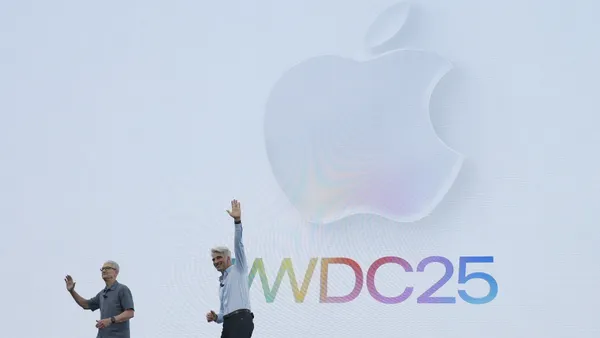Brief:
- Smartphone shipments fell for the seventh straight quarter in Q2 2019, but a slower pace of declines indicates that the market could be stabilizing and that demand is starting to pick up, researcher International Data Corp. (IDC) announced. The firm estimated that global shipments fell an estimated 2.3% to 333.2 million in Q2 from a year earlier, a smaller drop than the 6.6% yearly decline observed in Q1 2019.
- The top five makers of handsets — Samsung, Apple, Huawei, Oppo and Xiaomi — maintained their combined 69% share of the global smartphone market. Samsung kept its spot as the world's biggest maker of smartphones and reversed a Q1 decline with a 5.5% annual gain to 75.5 million shipments in Q2 from the prior year on the strength of its mid-priced Galaxy A series. Apple's shipments fell 18% to 33.8 million, an improvement from the 30% drop in Q1 as the iPhone maker struggled in China.
- Huawei, the Chinese electronics giant that faces a U.S. ban over security concerns, boosted shipments by 8.3% to 58.7 million in Q2 — compared with 50% growth in Q1 — to maintain its spot as the second-biggest maker of smartphones. The company focused its sales efforts internally to cope with weakness in overseas markets, per IDC.
Insight:
IDC's estimate of smartphone shipments confirms other reports of shrinking smartphone sales as mobile users hold onto their devices for longer and China struggles with its slowest economic growth in 27 years. The 2.3% slide in shipments last quarter wasn't as drastic as declines in prior periods, a sign that the smartphone market may regain momentum as tech companies change their sales and marketing strategies to support demand. Those efforts include the development of lower-priced smartphones or trade-in programs that encourage brand loyalty.
The expansion of 5G networks likely will urge many consumers to upgrade their phones to get the high-speed service, giving device makers a chance to convert new customers as they also aim to protect their existing customer bases.
A prolonged trade dispute between the U.S. and China has turned a smartphone purchase into a patriotic decision for many Chinese customers. U.S. restrictions on Huawei have forced the company to focus on China as a source of growth, including an expansion of its sales efforts to smaller cities, per IDC. Other Chinese companies have shown support for the company as it contends with the U.S. ban. Several Chinese companies have even offered cash rewards to employee who either own a Huawei device or switched from an iPhone, The Wall Street Journal reported.
IDC's estimates confirm Apple's recent earnings report that showed a 12% drop in iPhone sales to about $26 billion during the three months ended June 29. The company has worked to diversify its revenue with a greater focus on services aimed at boosting revenue among the company's massive user base of 1.4 billion installed devices. Paid subscribers to services like Apple Music, Apple News and iCloud storage grew to 420 million from 390 million in the prior quarter, and the company plans to roll out additional services such as a credit card, a video-streaming service and a game platform this year. Apple's share of smartphone shipments slipped to 10% in Q2, but its ability to sell refurbished iPhones helps the company to maintain a strong market position, per IDC.











